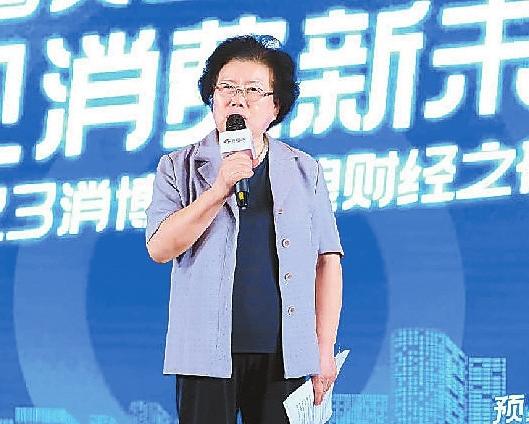
A RENOWNED Chinese economist has found herself in hot water after comparing children to consumer durables that generate long-term value. The controversial comments triggered a backlash online, although the expert claimed her view was misinterpreted. In a speech made at the third China International Consumer Products Expo in Haikou, Hainan, on Tuesday, Chen Wenling, chief economist of the China Center for International Economic Exchanges, cited U.S. economist Gary Becker’s theory that children are like consumer durables. Becker’s fertility theory holds that with higher income, people would “purchase more” children, as they would in purchasing consumer durables. Chen said that children can bring long-term benefits, so it is wrong for young people not to have kids, noting that “the value of having children exceeds the value of purchasing other goods.” Her remarks soon went viral on Chinese social media site Sina Weibo, becoming a hotly debated topic with more than 1.63 million views as of yesterday afternoon. Many netizens rebuked Chen’s remarks, criticizing her for lacking empathy and human attachment. Others attacked her for being too simplistic about the subject of birth and childrearing. “It is not like buying a bag that simple. Besides, I don’t even have the money for such consumables as a bag,” one netizen noted. Chinese media quoted Chen as saying that her view was misinterpreted by netizens. “When you purchase certain items, you can immediately see their consumption value and use value, as in the case of most consumer durables. But having children is different from buying a property because you cannot immediately find use for children except for the emotional satisfaction of being a parent. Then I said it is wrong for young people not to consume because they are giving up future benefit,” Chen explained. Chen continued to say that from an economic perspective, having children was a worthwhile investment. The economist acknowledged the criticism, saying: “Many young people are struggling to buy a house or even find a job. So they harbor strong negative feelings when being encouraged to start a family. Such feelings are understandable.” In 2021, China announced further adjustments to its family planning policy to allow each couple to have up to three children after the number of births declined for the fourth straight year, marking a major policy shift from the country’s two-child policy. Both central and local governments have rolled out a range of supportive policies to encourage births. In March, multiple Chinese cities issued supportive policies, including providing subsidies for three-child families to encourage more births, with some cities issuing a monthly 500 yuan (US$72.63) stipend for families raising three children.(Global Times) | 
